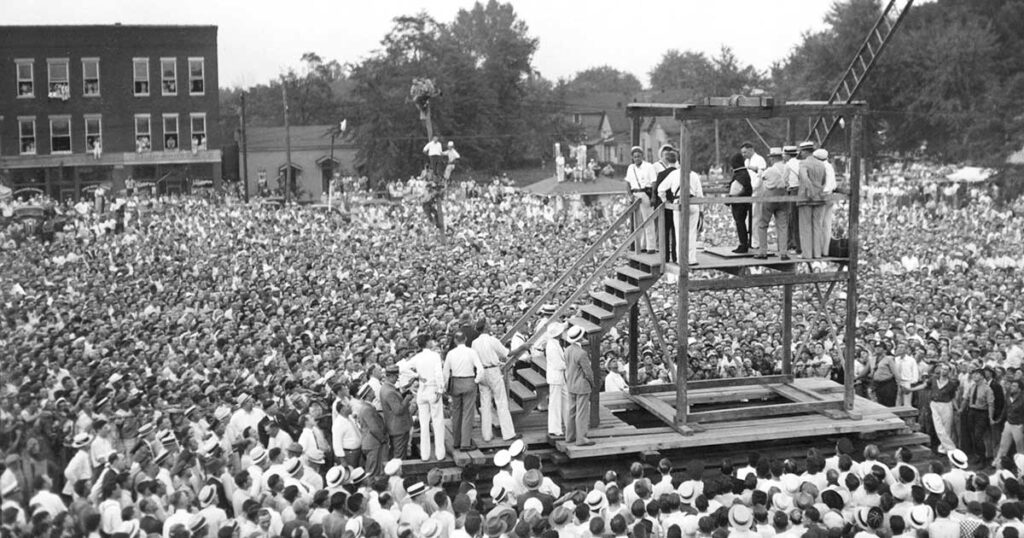In August, I was asked if I would speak to BLC youths about the death penalty. For six reasons, I hesitated.
First, an experience in my teenage years. My mother asked my brother and I to slaughter a chicken. We’d seen it done many times. We thought it’d be fun. We agreed. Many times, we held the knife to the chicken’s throat. First him, then me. After what seemed like hours, my brother did it. My mother cooked it. Neither my brother nor I ate it. He got sick. He was in bed for two days. I couldn’t kill a chicken. How could I kill a human?
Second, I’d never seriously thought about the death penalty. The execution I most clearly remember is that of Timothy McVeigh. In 1995, then aged 27-years, McVeigh bombed an office block in Oklahoma. He killed 166 people, including 19 children. He injured 680 others. I remember McVeigh’s execution because of a joke I made to an American colleague in China on the day he was executed. I joked that a momentary drop in electricity supply to our hotel occurred because of the electricity the US drew from the grid to kill McVeigh. (They killed him by lethal injection.) For me, then, the death penalty was a laughing matter.
Third, I felt that only an expert should speak about it. I thought I was as unqualified to speak about the criminal justice system as I was to speak about vaccinology or astronomy. I thought use of the death penalty was a given, just like the rising and setting of the sun every day.
Fourth, I thought religious faith had nothing to do with it. I’d been a Saivite (Siva-worshipping ‘Hindu’) for all my life before I became a Christ-follower. What I had learned from teachers in both these faith traditions over 60 years didn’t include anything about crime and punishment – aside from karma and eternal damnation.
Fifth, I knew I favoured something worse than a quick death for some criminals. Criminals such as child rapists, fathers who rape their daughters, or drunk drivers who kill people, or terrorists such as McVeigh. I knew I would like similar treatment for Adolf Hitler, Idi Amin, Mao Zedong, and Pol Pot, the mass murderers from Germany, Uganda, China, and Cambodia. In fact, my biggest Christian hero, Pastor Dietrich Bonhoeffer, participated in a plot to kill Hitler.
Sixth, I know many good people who support the death penalty, and many good people who oppose it. I know a couple of judges who, in the course of their careers, must have sentenced people to death. Many of my activist friends oppose the death penalty. They were so happy when the Pakatan Harapan coalition, in its 2018 election manifesto, promised to end judicial killing in Malaysia. They were so sad when the government, under intense pressure from the families of victims of criminals, reneged on its promise.
That said, I did agree. Why? Because it clearly is a subject of interest to some in our congregation. Because I had four months to prepare. Because, through my work in advocacy for police reform, I had learned about many weaknesses inherent to the criminal justice system. For example, judges and juries sentence poor people to death far more frequently than they sentence rich people to death. And that evidence gathered by the police is often unreliable. And that the criminal justice system is routinely used to suppress dissent and to organize society along lines of class and race.
My four months of research, focused on giving a 45-minute talk, resulted in a collection of four human stories about the death penalty. The first is about the last public hanging in the USA – of a black man, by a reluctant white woman sheriff who was a mother of four children. The second is about a man who “got closure” when he watched the judicial killing of the man who raped and killed his cousin. The third is about a Christian who spent 22 years on death row for a crime he didn’t commit. The fourth is about a petition which bankers sent to parliament, calling for elimination of the death sentence as a punishment for forgery.
I included discussion of the views of the United Nations, the status of capital punishment and executions around the world, the status in Malaysia, the stances of various religious groups, the practice in ancient Israel, the evolution of Christian thinking, differences of opinion between clergy and laity, and a summary of three Christian, bible-based, positions on the death penalty: it’s mandated, it’s prohibited, it’s permitted.
What’s your position on the death penalty?
To learn more about Rama, click here.



Pingback: 3 views about capital punishment - Bangsar Lutheran Church